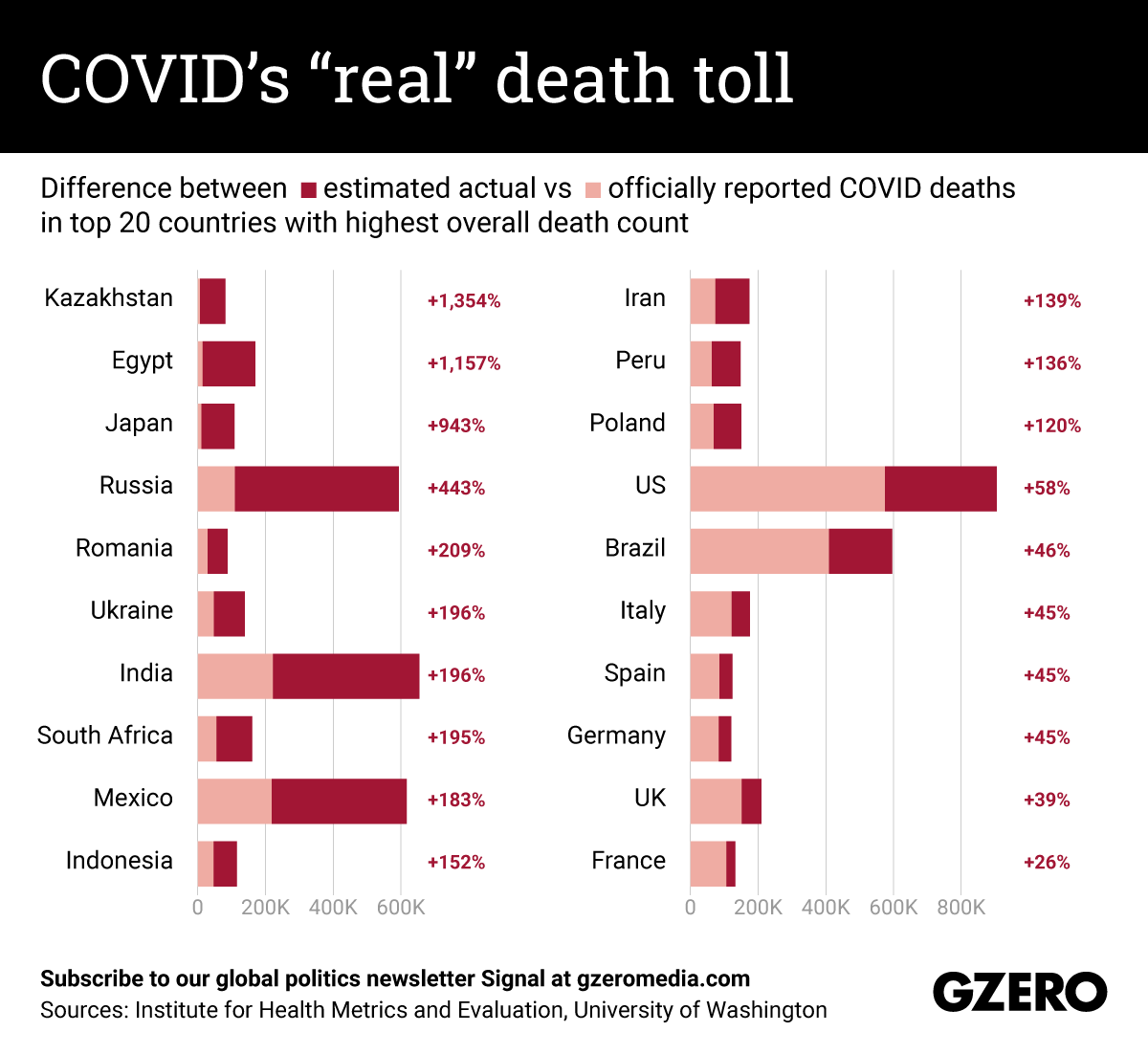May 07, 2021
COVID has officially killed almost 3.5 million people around the world since the beginning of the pandemic. But some public health experts believe that the real number could be more than twice as high, because of challenges to accurately reporting the death toll in many countries around the world. A new study from the University of Washington contends, for example, that actual deaths are nearly 60 percent higher than reported in the US, almost triple as high in India, more than five time as high in Russia... and a staggering ten times higher than the official tally in Japan. Here's a look at how official figures compare to actual estimated deaths in the 20 countries where COVID has claimed the most lives.
More For You
Bad Bunny during the Super Bowl LX halftime show press conference at Moscone Center.
Kirby Lee-Imagn Images
100 million: The number of people expected to watch the Super Bowl halftime performance with Bad Bunny, the Puerto Rican superstar and newly minted Album of the Year winner at the Grammys.
Most Popular
Think you know what's going on around the world? Here's your chance to prove it.
- YouTube
An imminent US airstrike on iran is not only possible, it's probable.
Americans are moving less — and renting more. Cooling migration and rising vacancy rates, especially across the Sunbelt, have flattened rent growth and given renters new leverage. For many lower-income households, that relief is beginning to show up in discretionary spending. Explore what's changing in US housing by subscribing to Bank of America Institute.
© 2025 GZERO Media. All Rights Reserved | A Eurasia Group media company.
